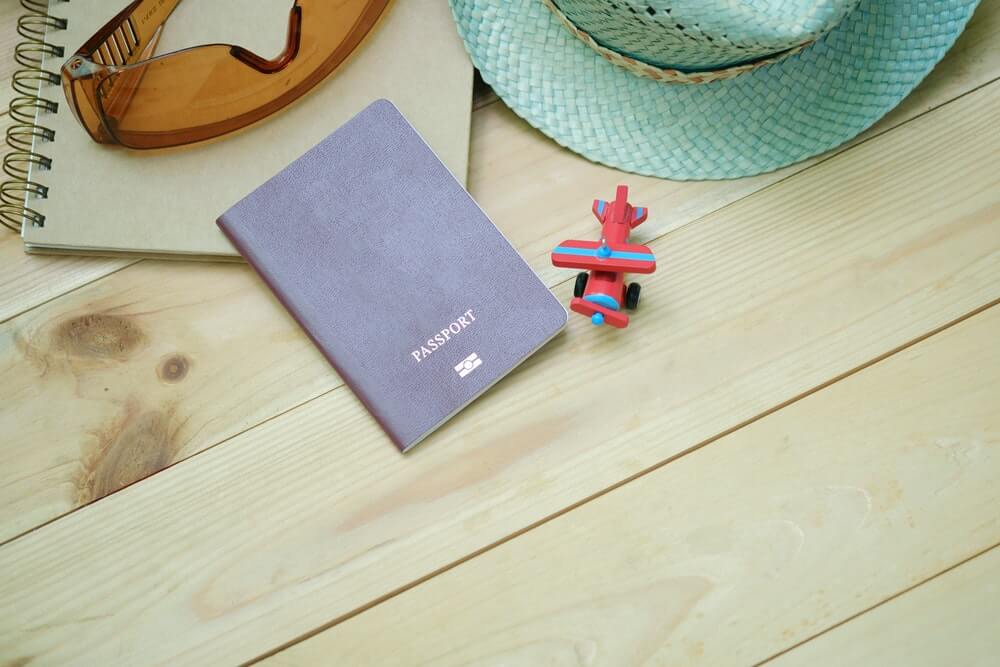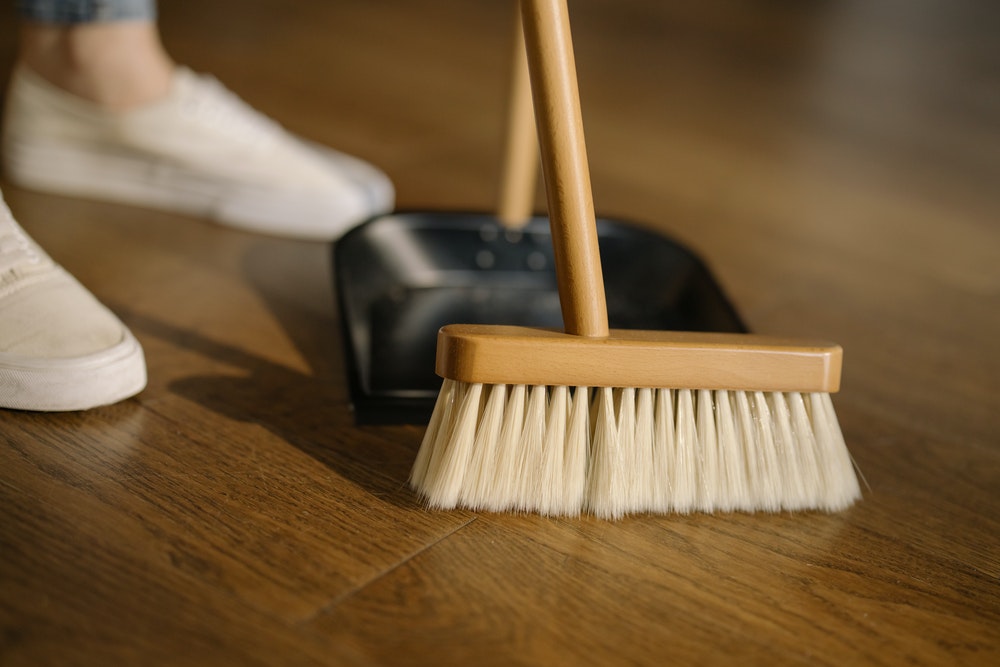When you open your door to strangers, especially in the short-term rental industry, you never know what kind of guest you’re going to get. While you can hope for quiet, respectful visitors who make the hosting experience run smoothly, every once in a while you’ll get hit with problematic ones—guests who make too much noise, disrupt your neighbors, and trash your property.
But how do you identify these guests before it’s too late? Let us tell you—it’s not easy. Troublesome guests slip through the cracks all the time. That’s why we’ve come up with the following tips on how to spot unwanted guests during the booking process.
Examine the guest’s reservation
Before you confirm a reservation, carefully read over the details of the guest’s booking. The warning signs that identify an unwanted guest are usually subtle, but they are present. You just have to know what to look for.
Watch out for guests who are booking properties that are larger than what they would need. For instance, one couple does not need to rent a three-bedroom property. If a guest is booking an unnecessarily big property, they could be planning to sneak in unregistered guests or throw a party. Make it clear to the guest that anyone entering the property must be registered with you.

Next, beware of guests who book for one night on a weekend. While this isn’t an immediate red flag, it is worth looking into. Single night bookings on a weekend are prime times for predrinks and parties. To clarify their intentions, follow up with the guest and ask about their travel plans. If a guest gives vague answers or can’t get their information straight, cancel the booking.
Finally, keep track of what’s going on in your city. When there’s a major event happening, like a film festival or a parade, demand for rentals skyrockets. Though great for revenue, it also means you’re dealing with guests who are in town to celebrate. Up your prices and monitor your bookings during these events to avoid guests who are just looking to party.
Research the guest online
Channel your inner sleuth and look into the guest’s online presence. Search for reviews of the guest written by other hosts. This will reveal whether the guest was respectful of the host’s property and rules.
Check out their social media accounts. Scroll through Facebook, Instagram, and Twitter to verify the guest’s identity. If you can’t find them on social media, try googling their name and phone number. Not being able to track down an online presence doesn’t mean you should automatically cancel the reservation, but you do want to be wary of identity fraud. Follow up with the guest to gather more information.
Check the guest’s ID
It may make you feel like the bouncer outside of a nightclub but this is the best way to confirm whether the guest is legitimate or not. Have the guest email you a copy of their driver’s license or passport to keep on file.
Once you receive the document, ensure that it belongs to the person who made the reservation. It’s also a good idea to cross-reference the ID with the provided credit card. Unless it’s an HR booking for an employee, the guest who’s staying at your property should be the one making the reservation. If the two names don’t match, it’s possible you’re dealing with either a fraudulent ID or a stolen credit card.

In case it is a fraudulent ID, examine the guest’s photo and personal information closely. Compare it to your own ID. If the head looks like it’s floating or the information doesn’t make sense, it’s likely a photoshopped image.
Finally, If you’re really concerned, you can check the guest’s name against criminal databases, like the FBI’s most-wanted list. This will reveal whether the guest is involved in any criminal activities. Airbnb does this automatically for both guests and hosts during their vetting process.
Communicate with the guest
It may seem archaic, but getting on the phone with the guest and asking them questions is the best way to ascertain their intentions. With thoughtful conversation, you can confirm whether or not you’d like to move ahead with the reservation.
It’s a warning sign if the guest is dodging your calls and won’t speak to you. Insist on speaking over the phone rather than letting them hide behind emails and texts.
Once you have the guest on the phone, don’t be too aggressive—this isn’t an interrogation; it’s your chance to get to know them. Enquire about their reason for traveling, where they’re coming from, who they’re arriving with, and what their trip itinerary looks like. Be wary of guests who are vague about their travel plans.
Give your guest the opportunity to ask you questions. Tell them about the property, where it’s located, and what your house rules are. It’s important to set expectations with the guest so they know you won’t tolerate any misconduct.
How to Screen Guests When You Don’t Use Listing Sites
When you step off listing sites and OTAs to take your vacation rental marketing into your own hands, you already have plenty of things to worry about. How can I get more traffic landing on my website? How can I ensure site visitors convert into bookings? What other tactics can I use to market my vacation rental? One thing you don’t want to have to stress over, however, is accepting the wrong guests at your rental.
Even though listing sites often require users to verify their account with a government ID, Airbnb horror stories can still happen. So, when you’re going it alone, how can you make sure you pick the right guests every time?
We take a look at five of the best ways to screen guests before accepting a booking. Read on to find out more!
1. Be alert to weird email addresses
As a general rule of thumb, if an email seems unprofessional, spammy, or simply fake, it probably is. While it’s true that many people will have had an embarrassing first email address, most will have grown out of theirs and made an appropriate adult email address for situations such as renting vacation homes. If they don’t – this could be a big red flag. You can check a list of potential spam email providers here.
Equally, if the email comes from a college student’s address, this could be another issue. Of course, not all college students have a bad reputation, but pay particular attention if your rental is near to the school – otherwise, it might be an out-of-control party just waiting to happen.
2. Make it clear they will have to sign your tenancy agreement
To ensure that every guest who enters your home is a good egg, make sure they’re aware of the terms and conditions of your rental agreement – including house rules – from the very first inquiry.
If you don’t already have this listed on your vacation rental website, it’s a good idea to include it in the introductory or “getting to know you” email, so that they know they have to accept the agreement in order to stay at your place. This will deter any unsuitable candidates from proceeding with their booking inquiry.

3. Increase your minimum stay
Another idea to help filter out any no-gooders from staying at your place to throw a wild party? Increase your minimum stay length. If your minimum stay jumps from one or two to three (or even four) nights, it suddenly becomes a much bigger commitment and will discourage party animals looking for a cheap yet luxury venue for the night.
4. Impose a hefty damage deposit
It seems obvious, but when renters have to hand over hundreds of dollars for a deposit, it will make them think twice about trashing your place. Setting a high (but refundable) damage deposit will help dissuade any unsuitable renters from even thinking about staying at your place.
5. Check in on them during their stay
Whether you simply send travelers a quick text message mid-stay or let them know beforehand you like to drop by and see how guests are getting, checking in on your guests will help ensure that you did make the right choice, after all!

How Can Bad Renters Impact Your Business?
Now that we’ve gone over how to screen your visitors, let’s talk about the impact that “bad renters” have on your brand and your overall business. Here are a few examples:
1. More time to turnover
We can all look at the on-the-surface ways in which bad house guests mess up your home (we’ll get to those soon), but here’s one people don’t really think about until they look at their end-of-the-month or end of the year totals: turnover.
Your turnover time is defined as the time it takes to keep your listing constantly filled with new guests. If your turnover time is low, that means you have a revolving door of guests. One in, one out.
On the other hand, if your turnover time is high, that means it takes more time to occupy your spaces – which is not good. Higher turnover time means less income for you and less profit (those rooms aren’t going to stock their own amenities!).
2. More cleaning fees
If you’re going to clean up after the renters leave a mess of the place, you’re going to have to spend money on cleaning supplies – or hire a vacation rental cleaner to do it for you.
This obviously takes time and money. Cleaning supplies can start to add up pretty fast, which is why we recommend you have a budget just for cleaning. We also recommend going with a certified cleaning service or app that’s good for coordinated cleaning. It will save you time on the back-end so you can use it for other administrative tasks in your home-sharing business.

3. Property damage
Not only can bad renters create more turnover time and make the house a mess, but they can also leave lasting damage on your property. We recommend not keeping personal or very special items in rental, but there are some things that cannot be helped.
For example, you may rent a property that isn’t necessarily a house, but it’s more of a “bed and breakfast with an Eastern theme”. To emphasize the Eastern theme, you may have placed a large Buddha statue in the main area outside the property. That centerpiece cost you $5,000 to install, so it isn’t cheap. But guess what? If you have irresponsible renters, they may “accidentally” throw a party where one of the guests thinks it’s a good idea to play “baseball with Buddha”. Now your statue is ruined. There go five grand and a great centerpiece!
4. A bad reputation
We all know reputation means everything (just ask Taylor Swift). But in the game of online home-sharing services, reputations can spell life or death for your business.
Let’s say all of the previous three things happened and you’re dealing with the fallout from all of them. In your desire to clean up for your incoming guests, you forgot something. Maybe you didn’t do as good a job of cleaning, maybe you forgot to replace the door that was broken, or maybe a key attraction in the photos of the property isn’t there anymore (bye, Buddha). Your guest will be a less-than-happy camper.
After the experience, they leave a less-than-stellar review. One bad review may not hurt you, but pile up enough of them and people will be sure to stay away.
5. The risk of your business getting shut down
We come to our final (and most important) point in why you should never let bad renters onto your home or property.
Have you ever heard of those Airbnbs that had a party thrown at the property and managed to anger everyone in the neighborhood? Have you ever heard of neighborhood associations and homeowners’ associations taking a stand against home-sharing because of said parties?
If you have a wild party, a bunch of rowdy guests, and people who couldn’t care less about the surrounding neighborhood, you will most likely be a target of a homeowners’ association takedown.
That could mean the loss of being able to rent a key property, the loss of income, and even the risk of losing your business – all because of bad renters.
The Solution
By following the tips in this article and screening potential guests before accepting reservations, you can avoid unwanted problems and attract the type of people that align with your own values. This way you can run your business without feeling like you’re walking on eggshells and provide peace of mind for all your surrounding neighbors.


